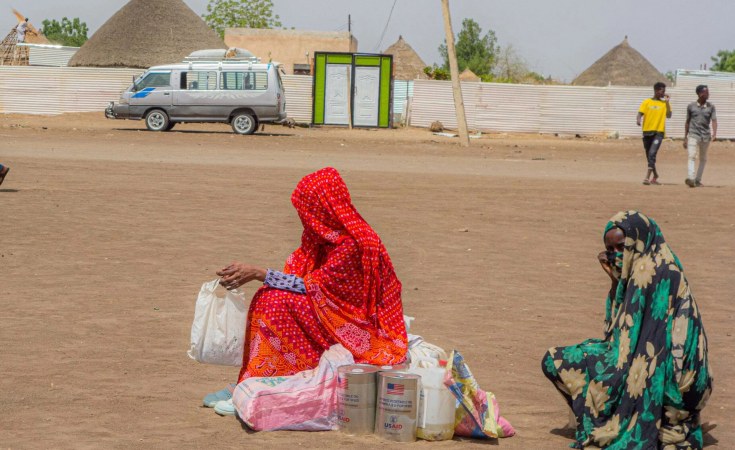Nairobi — The war in Sudan, which resulted in the largest internal displacement crisis in the world, has catastrophic impacts on women and girls, UN Women reported in a new Gender Alert on Thursday.
The number of people in need of gender-based violence-related services has increased by 100 percent since the war between the Sudanese Armed Forces (SAF) and the Rapid Support Forces (RSF) erupted in mid-April 2023. The figure was 6.7 million by December and is estimated to be even higher today, according to the Gender Alert entitled Women and girls of Sudan: Fortitude amid the flame of war,published by UN Women Africa on Thursday.
"While men and boys are also victims of gender-based violence, most of these cases involve women and girls," UN Women states. "The ongoing violence, particularly in Khartoum, Darfur, and Kordofan, has exacerbated the risks faced by women and girls, with rising reports of conflict-related sexual violence, sexual exploitation, and abuse. The nearly 5.8 million internally displaced women and girls are particularly vulnerable, with many cases of abuse going unreported due to a lack of adequate support and fears of stigma and retribution."
In addition, "Sudan is facing the worst levels of acute food insecurity ever recorded in the country. With 64 per cent of female-headed households experiencing food insecurity compared to 48 per cent of male-headed households in ten states, women and girls are eating least and last.
"Women and girls also continue to be disproportionately impacted by the lack of safe, easily accessible, and affordable water, sanitation, and hygiene. At least 80 per cent of the internally displaced women are unable to secure clean water due to affordability, safety concerns, and distance," the 16-page report reads.
"Access to health care services is another challenge: 1.63 million women of reproductive age are without adequate services. Among them, over 160,000 are pregnant, and an estimated 54,000 childbirths are expected in the next three months."
As for education, "more than 2.5 million girls, representing 74 per cent of school-aged girls, are currently out of school, increasing their risk of being subjected to harmful practices such as child marriage and female genital mutilation".
'Unimaginable challenges'
Hodan Addou, acting regional director for UN Women's East and Southern Africa office commented that "Women and girls in Sudan are facing unimaginable challenges, yet their strength and resilience continue to inspire us.
"We cannot let Sudan become a forgotten crisis. Now, more than ever, the international community must rally together to support women in Sudan, ensuring they have the resources and protection they need to survive and rebuild their lives."
UN Women is supporting community-based initiatives, in partnership with women-led organizations, building resilience and ensuring access to critical humanitarian services for women, men, girls, and boys affected by the crisis.
The UN women agency therefore urges the international community, donors, and humanitarian partners to prioritise the protection and empowerment of Sudanese women and girls, including through the increase of funding for local women-led organizations, which received only 1.63 per cent of the Sudan Humanitarian Fund's financial resources in 2023.
"UN Women stands with the people of Sudan during this deteriorating humanitarian crisis and calls for an immediate halt to the war and a return to the negotiating table for peace dialogues."


